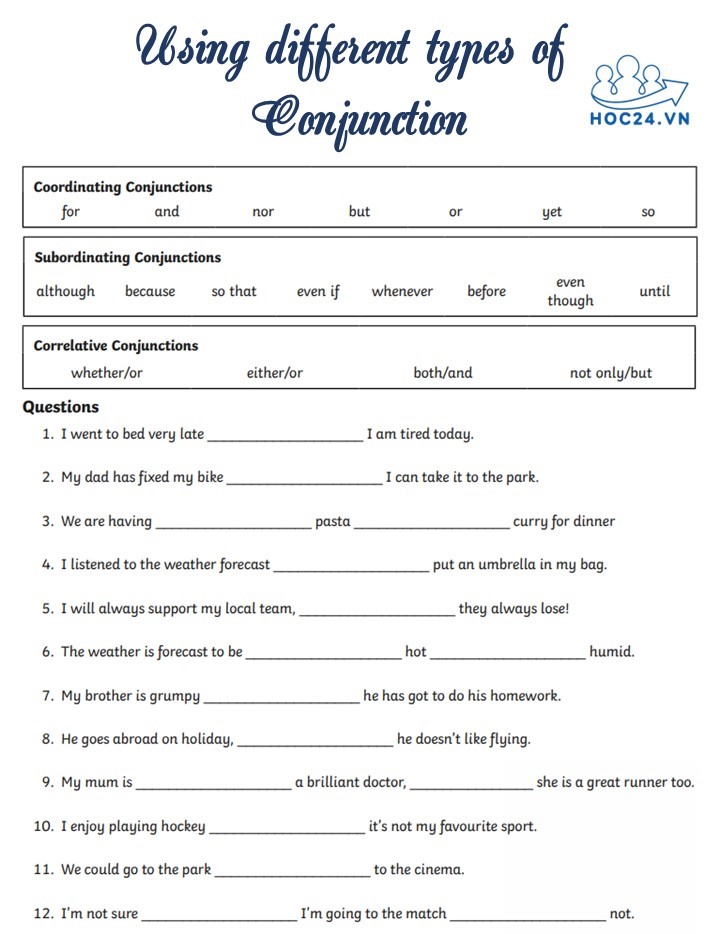Unit 1: Local Environment
Grammar

Hãy nhập câu hỏi của bạn vào đây, nếu là tài khoản VIP, bạn sẽ được ưu tiên trả lời.


II. Bài tập Unit 7 1. I want to see the ____protection_____of environment from the local authority. (protect) 2. She broke the glass because she was ____careless_____ (care) 3. Scientists are looking for an _____effective______way to reduce energy consumption. (effect) 4. That’s ____wonderful____! I’m pleased that you work very hard. (wonder). 5. ____Prevention_____is better than cure. (prevent) 6. There is a _____dripping_____faucet in your kitchen. (drip) 7. Energy-saving bulbs should be used to save ____electricity_____. (electric) 8. To keep air unpolluted, we ought to use ____solar_____ energy to create electricity. (sun) 9. We must learn to save _____natural_____ resources. (nature) 10.Fuel ____consumption_______ can be cut down by having fewer cars on the roads. (consume) 11.____Consumer_____ are very demanding. They want cheap and good products. (consume) 12.Solar energy is ____provided___ by the sun. (provision) 13.What can we do to ___conserve____ energy? (conservation) 14.Energy supplies can be ___extended___ by ___conservation____. (extend - conserve) 15.Tom, remember to use energy more ___efficiently_____! (efficient) 16.Mary was __extremely____ pleased that she passed the exam. (extreme) 17.Evelyn Murphy is one of the best ___environmentalist____ in the world. (environment) 18.We can protect the environment by ____reduce____ air ____pollution_____. ( reduction – pollute) 19.John’s bad result makes his parents ___disappointed_____. (disappoint) 20.Huong speaks English more ___fluently_____ than Lan. (fluent) 21.Air ____pollution______ is a burning issue in many big cities. (pollute) 22.These rivers are being_____polluted_____ by the sewage from the factory. (pollute) 23.I suggest we should keep our environment ______unpolluted______ (pollute) 24.The government required many factory owners to reduce the air____pollution_____. (pollute) 25. Sewage is pumped _____directly_______ into the rivers by many factories. (direction


The Obon dance is a traditional Japanese dance. People have the honour of their ancestors. The Obon festival takes place in mid-August in many regions of Japan and in mid-July in other regions. There are many forms in different regions. The most typical form is circle dance. People make a circle around a yagura, a high wooden stage; some dancers move clockwise, and some counter-clockwise. This is one of the most important traditions. A lot of people come back to reunite with their families during the Obon festival.
The Obon dance is a traditional Japanese dance. People have the honour of their ancestors. The Obon festival takes place in mid-August in many regions of Japan and in mid-July in other regions. There are many forms in different regions. The most typical form is circle dance. People make a circle around a yagura, a high wooden stage; some dancers move clockwise, and some counter-clockwise. This is one of the most important traditions. A lot of people come back to reunite with their families during the Obon festival.

II/ Vocabulary and grammar:
1. We have lived in this town …………..1998. (for / in / since / at)
2. What is the ………….of Viet Nam? It’s Dong. (capital / religion / population / unit of currency)
3. What benefits does TV bring about to people’s life? (events / programs / advantages / information)
4. He wishes he ………. (can fly / could fly / will fly / should fly)
5. Have you …………….seen a tiger? (already / never / ever / yet)
6. You like foreign films, ………….? (do you / will you / don’t you / aren’t you)
7. My brother is a university student, but he works …..……as a waiter in the evening. (full time / all the time / some time / part time)
8. We must study English at school. It’s a ……subject. (primary/ compulsory/ national/ secondary)
9. This report is divided broadly ……………two parts. (in / on / by / into)
10. In the 1990s, the sales of jeans stop………..(grow / to grow / growing / to be grown)
11. If Lan ……….hard, she will pass the exams. (study / studied / will study / studies)

I. Choose the right alternative.
1. I washed / have washed my hands so that I can help you with the cooking.
2. She arrived / has arrived at Kennedy Airport at 2 o'clock this morning.
3. The Pharaohs ruled / has ruled Egypt for thousands of years.
4. I found / have found the letter you looked / were looking for. Here it is.
5. They grew / have grown such a lot since we last saw / has seen them.
6. We recently started / have recently started to walk to work instead of taking the bus.
7. When I was younger I played / had played badminton for my local team.
8. I have had / am having the pains for three weeks now.
9. So far it was / has been so cold that we stayed / have stayed in the house all day.
10. The last time I went / have gone to Brighton is / was in August.
11. Don't disturb Amy. She just went / has just gone to sleep.
12. Bill phones/ is phoning his girlfriend again. That's the third time he phoned / has phoned her this evening.
13. Since the eruption started / has started, all the villages on the slopes of the volcano have evacuated/ have been evacuated.
14. The prices of houses increased / has increased dramatically in recent years.
15. Jim decided / has decided to continue the course, even though it is proved / was proving very difficult.

1. thành lập
2. đảm nhệm
3, nghệ nhân
4. điểm thu hút
5. đặc trưng vùng miền
6. nhắc
8. đi dạo xung quanh
9. sản phẩm
10. khác
11. đa dạng
12. lụa
13. đồ sơn mài
điêu khắc đá
1. so
2. so that
3. both/ and
4. and
5. even if
6. both/ and
7. whenever
8. although
9. not only/ but
10. but
11. or
12. whether/ or
em nghĩ câu 9 but có cần đi kèm also không